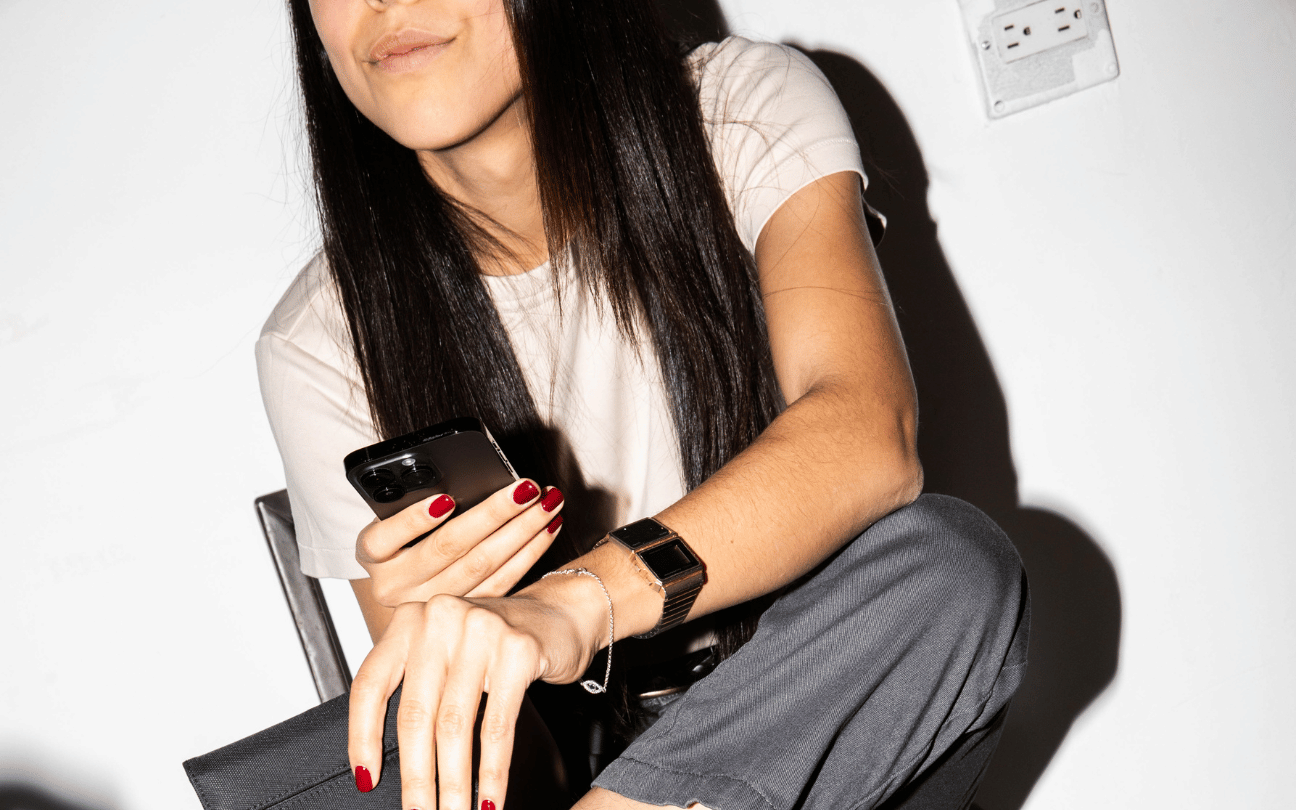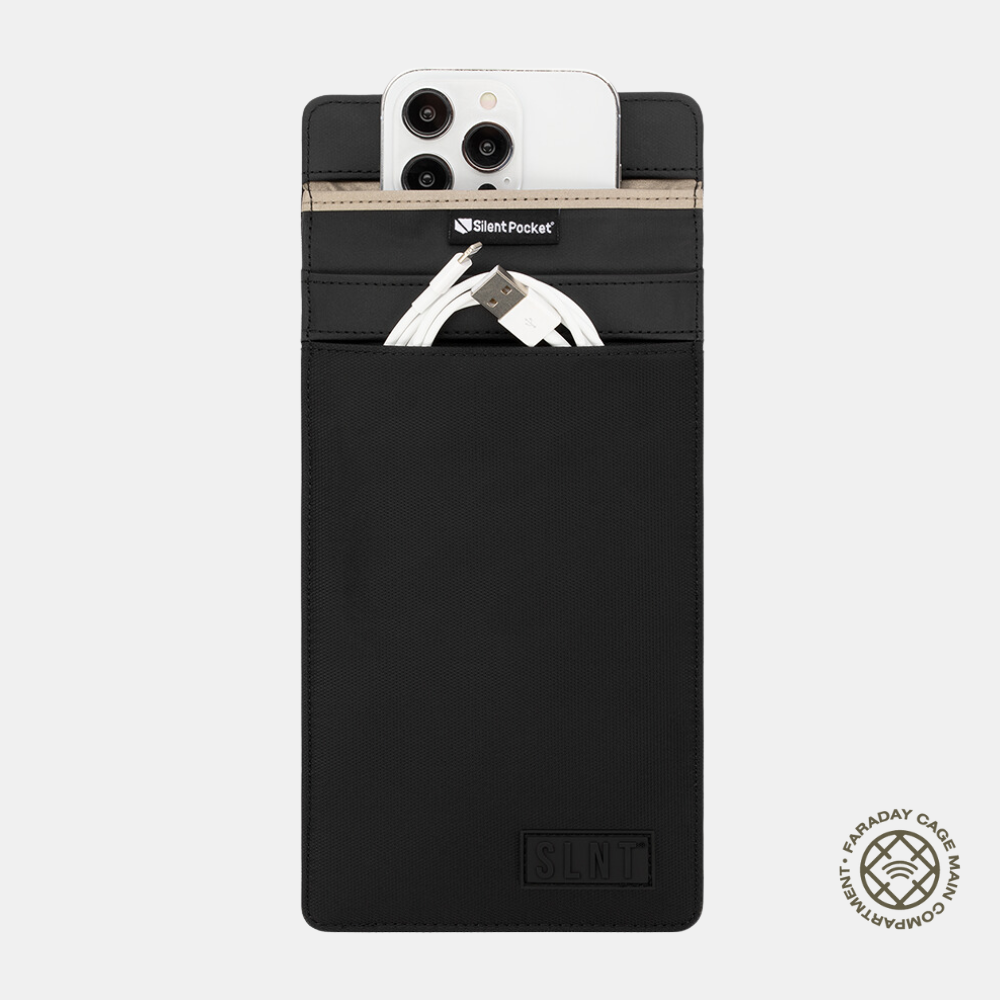Shop
Is Your Phone Messing With Your Mental Health?

You already know the answer. But let’s lay it out. The device that keeps you “connected” also fuels anxiety, wrecks your sleep, and trains your brain to crave constant stimulation. This isn’t just about kids glued to TikTok—it’s adults too, from late-night doomscrolling to that “urgent” email at midnight. Phones don’t just demand attention. They rewire it.
The Dopamine Trap
Here’s the science: every notification, buzz, or like triggers dopamine—the brain’s reward chemical. It’s the same loop that drives gambling addiction. This is called a variable reward system: you don’t know if the next refresh will bring likes, comments, or nothing at all. That unpredictability makes the hit stronger (Verywell Mind).
- Kids & teens: Their brains are still developing, especially the prefrontal cortex (self-control, decision-making). That makes them prime targets for compulsive scrolling, endless gaming, and TikTok binges (Time).
- Adults: We call it “multitasking” or “productivity,” but it’s the same compulsion. Email, Slack, newsfeeds—always “just one more check.” Over time, that constant loop chips away at focus and patience (PMC Study).
Phones aren’t neutral tools—they’re designed to hijack your brain chemistry and keep you hooked.
Anxiety in Your Pocket
The mental health fallout is everywhere:
- Teens: Comparison culture is brutal. When your worth is tied to likes, followers, and streaks, anxiety and depression spike. A global study of 4,000 teens found those with addictive phone behaviors were 2–3x more likely to experience suicidal thoughts (The Guardian).
- Adults: The anxiety shows up differently. Work never ends. Emails bleed into dinner. News scrolls feed fear and stress. Even when nothing’s urgent, the feeling of needing to check creates a baseline of tension that never shuts off (Mastermind Behavior).
This isn’t connection—it’s captivity.
Nomophobia: Fear of Being Without Your Phone
There’s even a word for the panic you feel when you’re away from your device: nomophobia (short for “no-mobile-phone phobia”).
It’s not just a quirky term—it’s real, and it’s growing:
- Defined as the irrational fear or anxiety of being without your phone, nomophobia shows up as stress, panic, or discomfort when people can’t check their devices (Verywell Mind).
- Symptoms include constantly checking for missed messages, carrying chargers everywhere, and anxiety if the phone dies.
- Studies show people with high nomophobia scores also have higher rates of anxiety, stress, and low self-esteem.
In other words, we’ve reached a point where simply not having a phone within reach can trigger a stress response. That’s not convenience. That’s dependency.
Sleep on Life Support
Phones don’t just steal attention. They steal sleep.
- Blue light delays melatonin production, which your body needs to fall asleep.
- Late-night scrolling keeps your brain wired in “alert mode” when it should be winding down.
- Stats don’t lie: Over 67% of students admit their phones disrupt their sleep (Kutest Kids).
- Adults aren’t better—70% admit they use their phones within 30 minutes of bedtime, and many wake up in the middle of the night to check notifications (Wikipedia).
Poor sleep isn’t minor. It wrecks memory, mood, focus, and long-term mental health. Chronic sleep loss is tied to depression and anxiety (The Sun / American Cancer Society).
The Phone Epidemic
The numbers are impossible to ignore:
- 50% of teens say they feel addicted to their phones (Time).
- Among adults, 60% report anxiety when separated from their phones (Verywell Mind).
- Phone addiction triples the odds of anxiety, depression, and stress (PMC Meta-analysis).
- Studies show heavy phone use reduces gray matter in the brain—the part that handles memory and impulse control (PMC Study).
- And here’s the kicker: even a 3-day break from your phone can reshape brain activity (ScienceAlert).
This isn’t a “kids these days” problem. It’s a human problem.
How to Take Back Control
You can’t out-willpower a system designed to exploit you. You need tactics.
- Kill notifications. Every ding is a dopamine trap. Turn off non-essential ones.
- Protect your sleep. Phones out of the bedroom. Period.
- Set boundaries. No phones at meals. No scrolls before bed. Parents—set curfews, but model the behavior too.
- Physically disconnect. Out of sight, out of mind. Drop your phone in a Faraday sleeve or Faraday bag. No signals = no temptation. Silence the Chaos.
The goal isn’t to throw your phone away. It’s to break the loop and make it serve you, not the other way around.
Final Word
So, is your phone messing with your mental health? Absolutely. The question is whether you’ll keep playing the game or take back control. Phones are powerful— they’re designed to keep you hooked.
The good news? Addiction isn’t permanent. Brains heal. Balance is possible. Disconnecting isn’t weakness—it’s strength.
Silence the chaos. Reclaim your time, your focus, your peace.
Recent Articles
Newsletter
Join Our Community: Privacy, Security, Health Updates
FAQ - Your Phone and Mental Health
-
Yes. Research shows phone use activates the same dopamine pathways as gambling. It’s a behavioral addiction, and it impacts brain structure over time (Verywell Mind).
-
If it messes with your sleep, focus, relationships, or ability to relax—it’s too much. For kids, experts recommend no more than 2 hours of recreational screen time per day (Mastermind Behavior).
-
Because their brains are still developing. The impulse-control part (prefrontal cortex) isn’t fully mature until the mid-20s. That makes them extra vulnerable (Time).
-
Adults trade Snapchat streaks for work email and doomscrolling, but the compulsion looks the same. Anxiety, poor sleep, and fractured attention are universal.
-
Not in today’s world. But intentional disconnection is. The goal isn’t to ditch your phone. It’s to reclaim balance.



